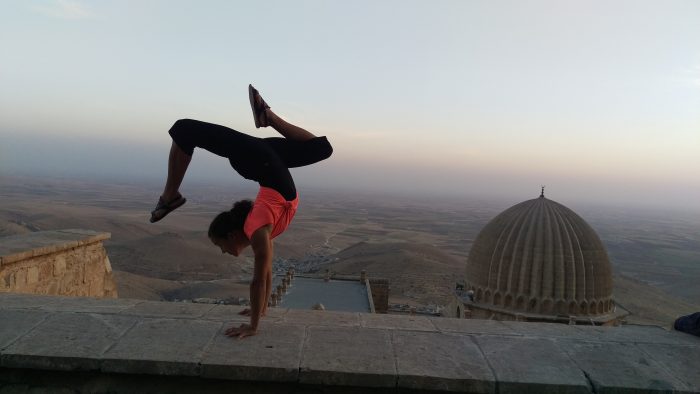It’s been a while since I felt at home, and a much longer while since I’ve had a home in its traditional sense.
Luckily, I’m in good company with digital nomadism and international volunteering on the rise, especially amongst millennials.
If we leave the (debatably) convenient professional aspects aside to ask ourselves why we choose a life of near-constant travel over the perceived stability of our parents’ and grandparents’ occupations, the answers are often similar: a yearning for freedom, a shift in values away from the material toward the experience, a will to contribute to positive change, and a deep desire to taste different possibilities.
I myself have been working, volunteering, and travelling in around 10 different countries in the last half year alone, and to be perfectly honest, I am getting increasingly tired of it. With the popularity of nomad blogs and travel-related Instagram posts still surging, it is no small feat to admit to myself that I’d rather be uncool and settled than burned-out.
Talking to friends and acquaintances on the road, I am far from alone in my yearning for a place called home, a base-camp, if you will, to return to between adventures that is something more than a dysfunctional family’s convenient basement.
In contrast to the longing for exotic destinations, the lust for life, and with carpe diem being the unofficial mantra of my generation, we all still share the evolutionary-ingrained and completely human desire to belong, to be part of something bigger. In fact, being part of a community and fulfilling an important role in it has a significant impact on our mental health.
As Sebastian Junger details in his exceptional book, Tribe: On Homecoming and Belonging, on community, hardship, and why we are struggling to come to terms with our comfortable, modernized world: “Humans don’t mind hardship, in fact they thrive on it; what they mind is not feeling necessary. Modern society has perfected the art of making people not feel necessary.”
And while I’m out in Turkey working with a social circus project, there are days when I feel somewhat necessary and like I am making a positive difference, but I already know that this experience has an expiration date. My role in this community is limited, the friendships forged and relationships entered will change, become dormant, or cease altogether and, at last, I will inevitably be replaced by another volunteer.
In this sense, volunteering work isn’t unlike renting: we are but paying off the landlord’s mortgage, investing money, or respectively, time and resources into someone else’s project. At the end of the day, we know that we don’t get to keep the house or to join the management team of the NGO we volunteered for—our noncommitment already part of the contract.
On the one hand, this sets us free from taking on too much responsibility, from having to choose one place over all the others, one job out of many potentially interesting professions. While on the other, it deprives us of a place to stay and to return to, a community to belong to, and to rely and build upon.
The mere fact that we can so easily move on can quickly make us feel unnecessary and replaceable, after the novelty of travel wears off.
By being on the road, we get to taste a multitude of different lives: in my late 20s, I’ve already worked as a rock climbing instructor, circus artist and coach, translator, intern on a husky farm in the Arctic, and travel blogger. At one point many years ago, I was engaged and nearly finished my first university degree. A month before the planned wedding, I literally ran away with the circus, to Thailand, and have since not lived in my home country.
In fact, I find it extremely difficult to identify with it anymore.
While travelling provides us with an easy way out, the opportunity to leave also allows us to avoid dealing with the difficult parts of our relationships, of our homes, and often, our jobs. With so many options and lives readily available for us to choose from, the prospect of wholly committing to just one seems more terrifying than ever to many of us, especially since the examples of settling for one job, one partner, and one lifestyle set by our parents and grandparents don’t do much to encourage most of us to do the same.
The idea of reliving their dysfunctional lives is the stuff of nightmares for myself and many of my friends, and yet, we often find ourselves wanting to belong somewhere more permanent.
Personally, I have recently left an exciting volunteering opportunity prematurely since my desire to stay, build, and create something more long-term has become so overwhelming that I simply do not wish to invest my mental, physical, and financial resources in anything else. I have stopped caring about the “coolness factor” of my adventures and decided to put my own happiness first—even if that means being boring.
In fact, the idea of staying in one place has begun to feel like a true luxury to me. The idea that I can make an acquaintance and say to them, “See you next Tuesday,” because I know where I will be next Tuesday and so do they, seems nothing short of enticing. The mental image of painting the walls of my home and getting to see those painted walls a year from now, or five, doesn’t seem stale, but rather refreshing.
Maybe it’s the concept of being able to trust myself enough to know that I will make the right choice when I finally commit to a home, a job, and a community that has become liberating. If we can trust that we will build something that is right for ourselves, we don’t need to be scared of its permanence.
Instead, we may even allow ourselves, from time to time, to get a little scared of losing the fruits of our work, of the contradictory impermanence of our homes and communities—or, from a better point of view perhaps, be deeply grateful for all that we have created.
So grateful, in fact, that the idea of losing it and having to start over once more could seem just as scary as at first settling and building did.
~









Read 0 comments and reply